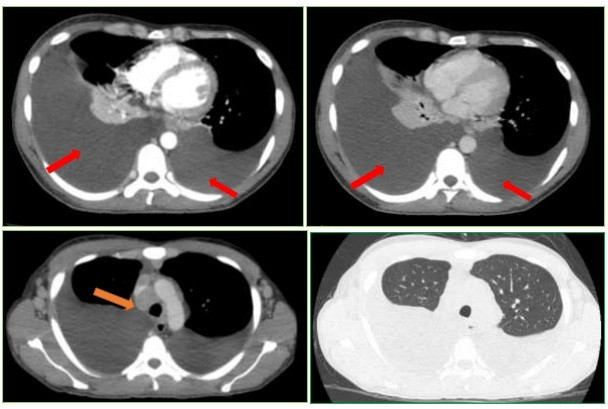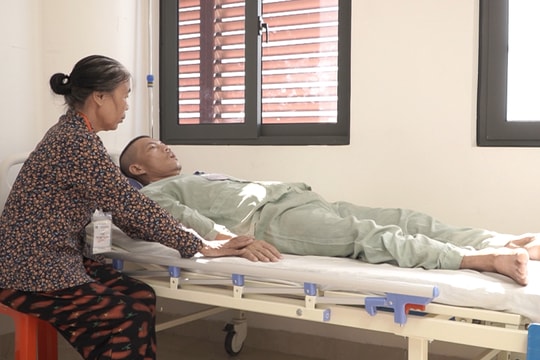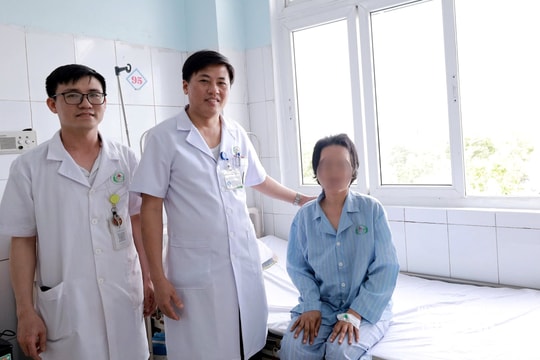Detecting two cancers from faint signs
A 36-year-old man had difficulty breathing, weight loss, and fever in the afternoon. He went to the doctor and was diagnosed with thyroid and lymph node cancer at the same time.
The patient had a healthy medical history and no one in his family had a terminal illness. At the lower level, the doctor diagnosed him with cervical lymph nodes, abdominal lymph nodes, and pleural effusion. The fluid was drained many times, but the patient was still tired.
Through testing and imaging at the Nuclear Medicine and Oncology Center, Bach Mai Hospital, the man was diagnosed with papillary thyroid carcinoma and non-Hodgkin's lymphoma.
After consultation, the doctor decided to treat malignant lymphoma before treating thyroid cancer because the patient's condition did not respond to two regimens at the same time. In addition, thyroid cancer requires radioactive iodine (I-131 - contraindicated for other cancers).
After 6 cycles of medication, the patient responded well to treatment. The doctor prescribed total thyroidectomy, I-131 and thyroid hormone replacement.
 |
| Image of patient's pleural effusion. Photo:Hospital provided |
On April 20, Dr. Pham Cam Phuong, Director of the Center for Nuclear Medicine and Oncology, said that in the world, the rate of patients suffering from two types of cancer at the same time is not much. Non-Hodgkin's lymphoma is a group of malignant diseases of the lymphoid tissue, which can manifest in the lymph nodes or outside the lymph nodes. The disease occurs at all ages, commonly between the ages of 45-55. The disease is rare in children, and men have a higher rate of the disease than women.
Thyroid cancer is the most common cancer among cancers of the endocrine system. The incidence of this disease tends to increase. Every year, Vietnam has 5,471 new cases diagnosed, accounting for 3% of the total number of cancer cases; the number of deaths is 462, accounting for 0.52% of the total number of cancer patients who die.
Doctors recommend early detection and treatment of cancer. People should give up bad habits such as smoking and drinking too much alcohol. Follow a scientific diet, including consuming lots of vegetables and fruits. Avoid processed foods, foods high in fat, and foods that have been fried many times. Maintain a reasonable body weight and rest, live a scientific life, and avoid prolonged stress.
Regular health check-ups once a year are recommended for people with risk factors such as smoking, drinking, family or personal history of cancer, overweight, obesity. If swallowing difficulty, weight loss, or changes in stool characteristics persist, people should see a doctor immediately.



.jpg)





